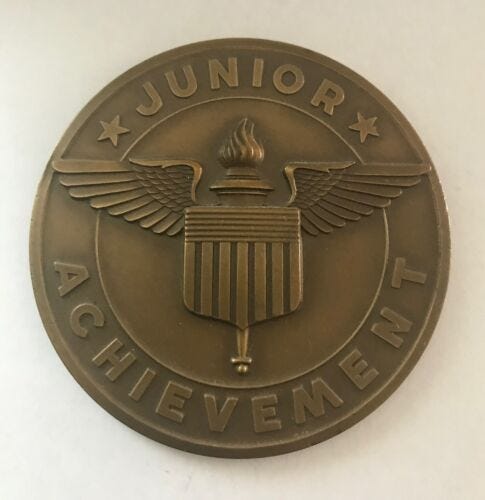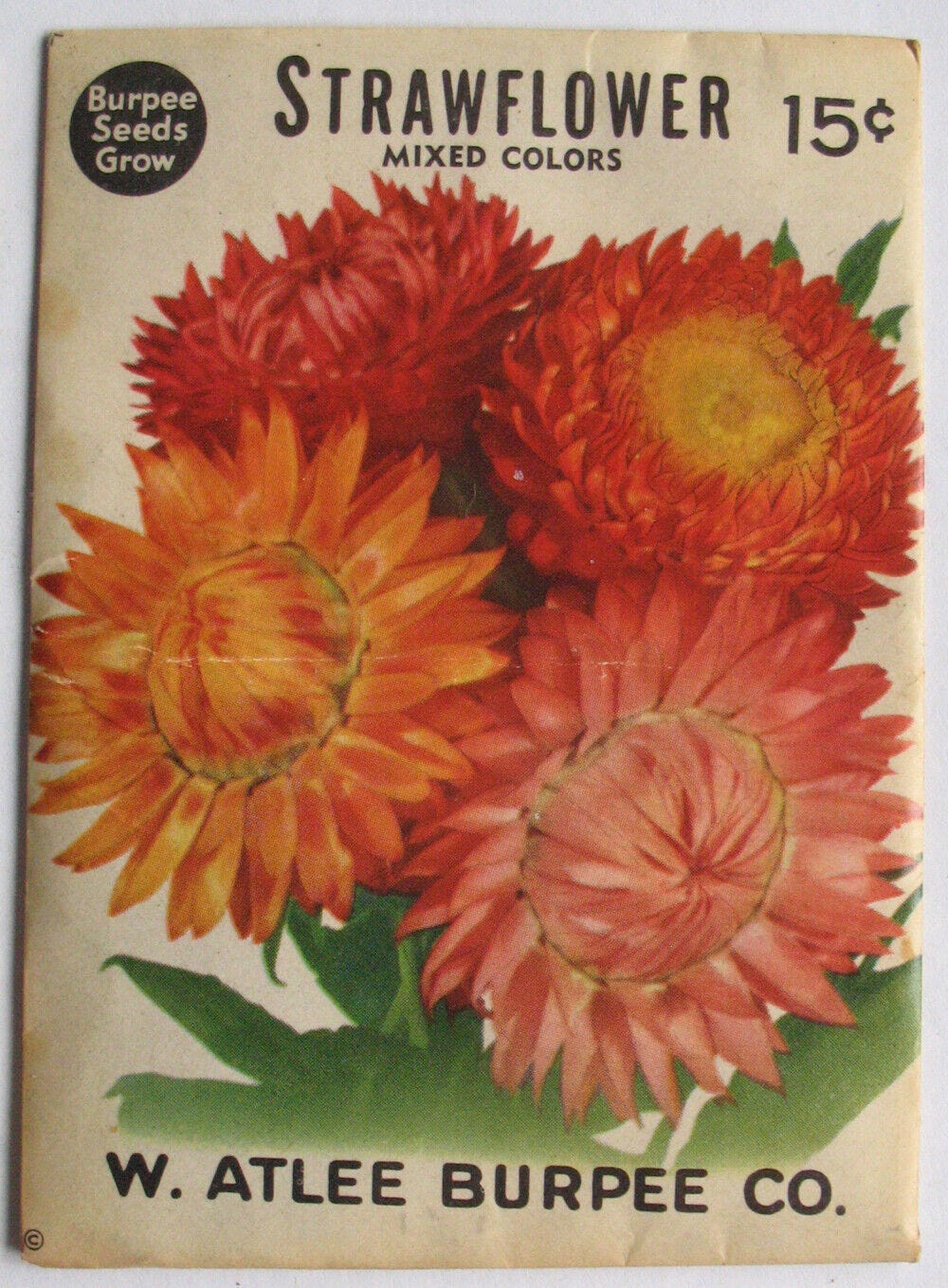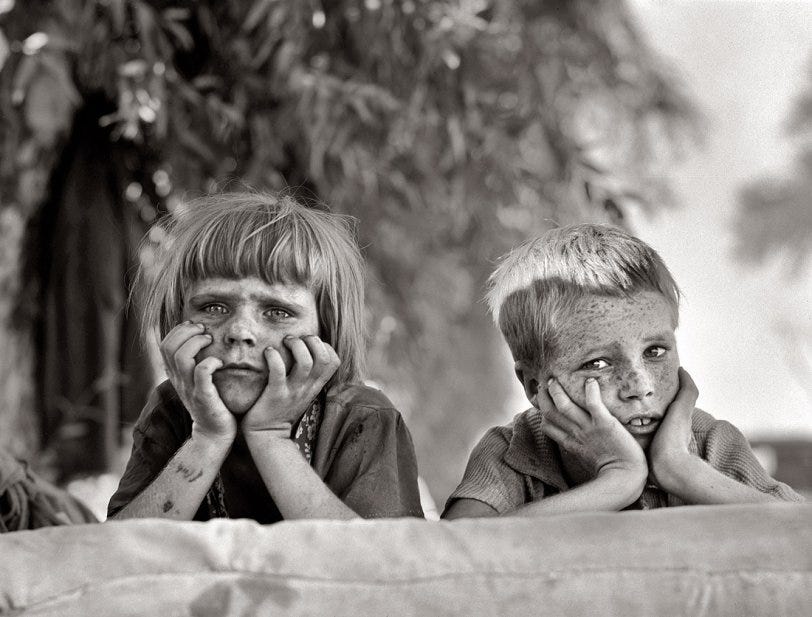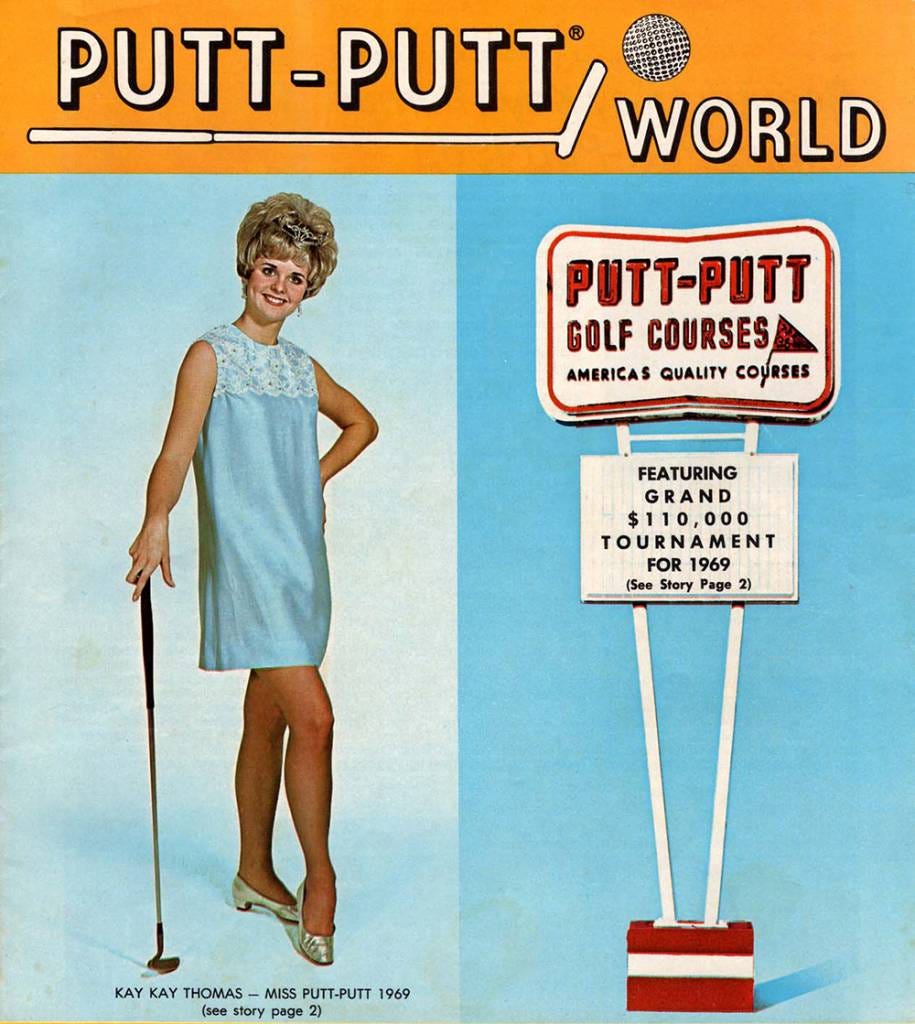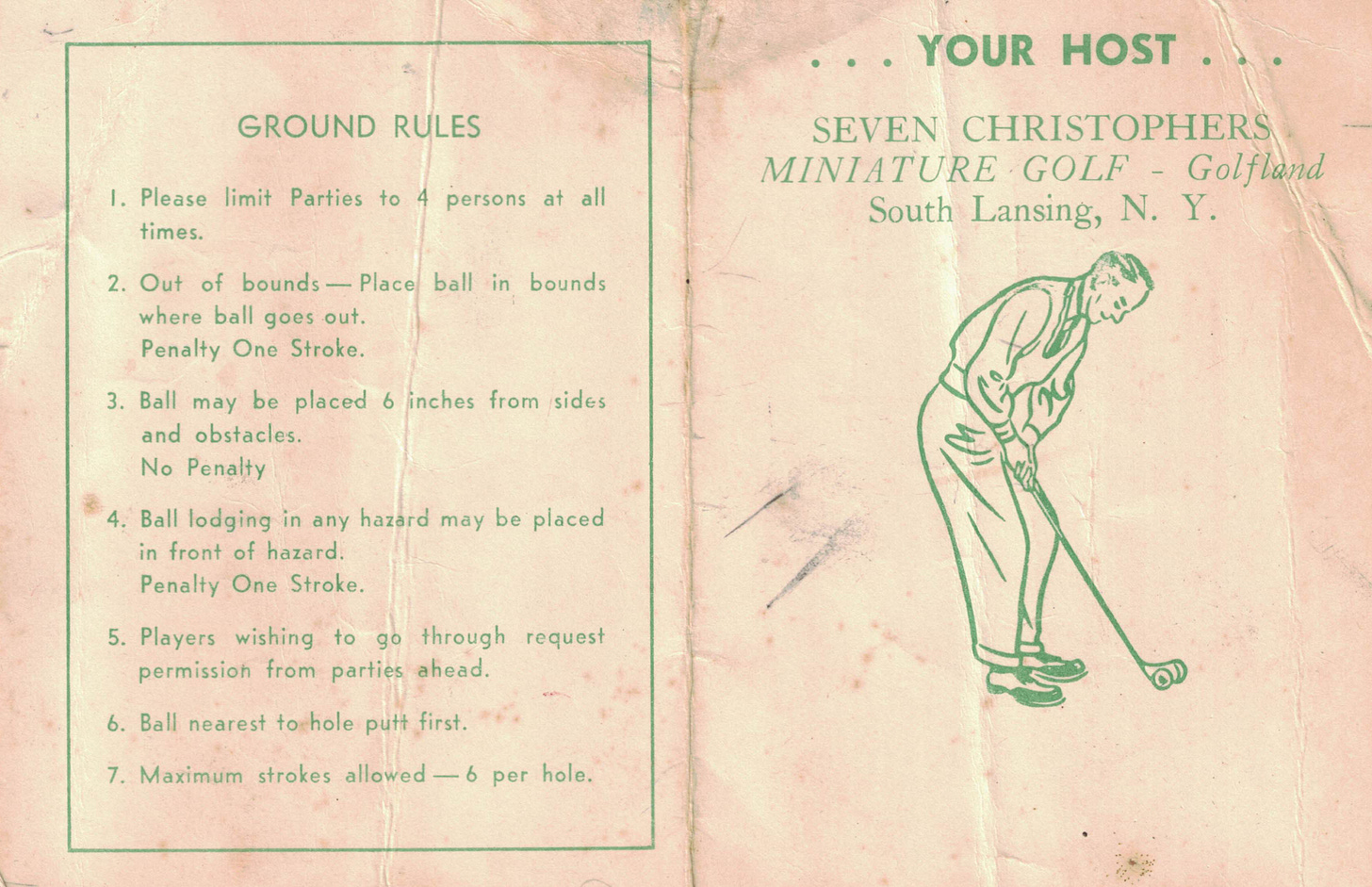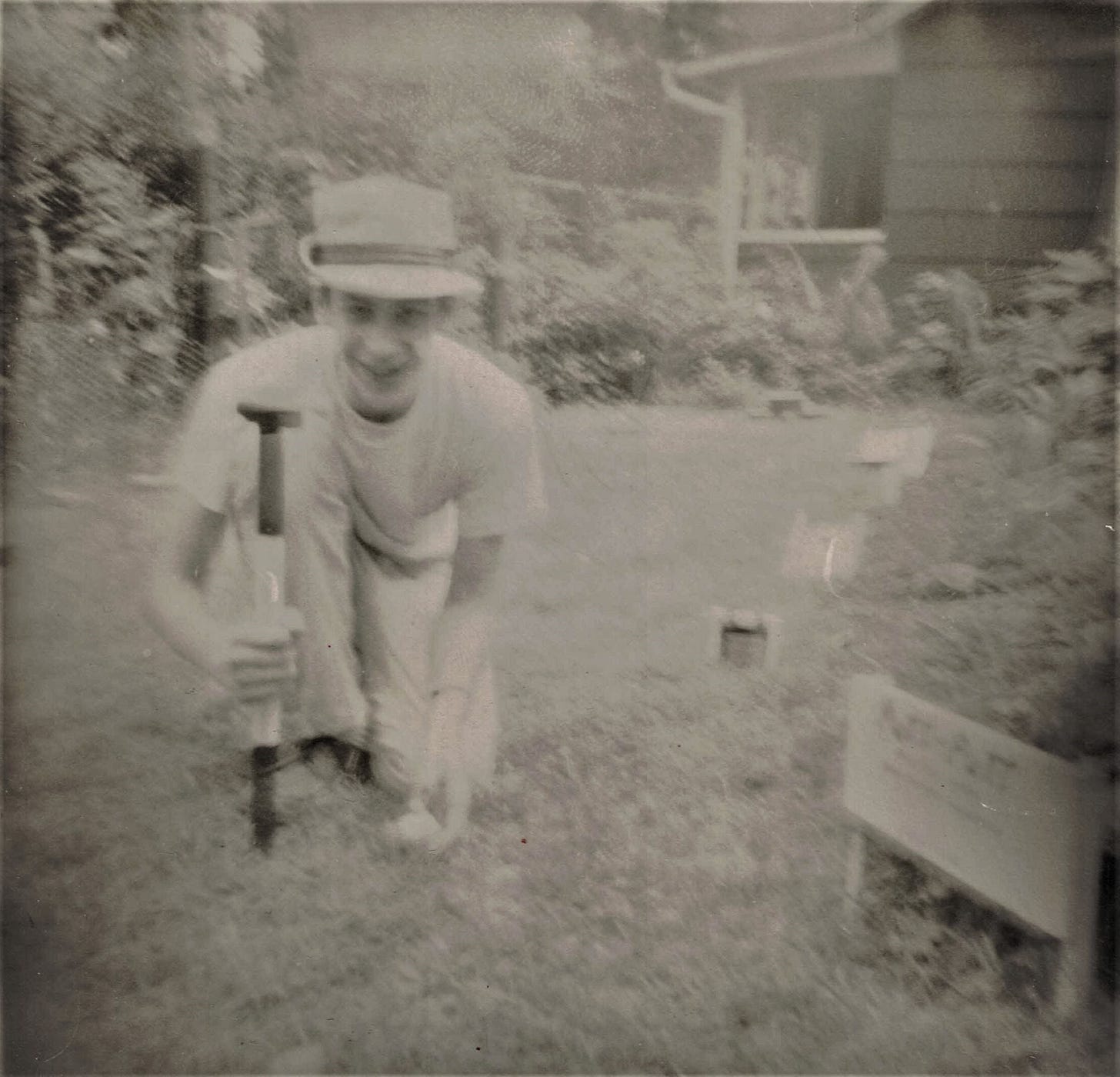If capitalism had a mascot, it would look nothing like me.
Junior Achievement originated in 1919 with the goal of teaching rural kids moving into big cities a thing or two about free enterprise. By the 1960’s it was airing TV ads with a Kennedy-esqe kid running along the dunes trailing a high-flying kite.
“Today’s youth, chimes the announcer proudly, “striving for a future that soars ahead. Tomorrow’s leaders, in a spirit of freedom, initiative, self reliance. With the ability to surmount obstacles and rise higher and higher in a sure flight toward success. Helping to guide our youth on their way, Junior Achievement shows them the practical side of the free enterprise system by enabling them to operate a business of their own. Junior Achievement helps to insure our American Way of Life.”
The American Way of Life would have to take flight without my help. I don’t remember a thing about my high school Junior Achievement club: neither the name of our business, nor the name of our sales manager, our quality control manager, our production chief, our president, or the local businessman who served as our advisor.
All I remember is this: we took blocks of wood, screwed pen holders into them, and worked up a plan to sell them at a profit. I sold exactly one, to my mom, who was a secretary at City Hall and needed to sign things when she wasn’t chunking away on her IBM Selectric typewriter.
Still, Junior Achievement actually was the capstone to a life of grand business ventures I had already lived as a child.
There was Dave’s Garden Center, operated out of our garage when I was probably 10 years old. We were a tomato- and flower-growing family, heading to the nursery every spring to load up on vegetable plants as well as flowers for the cemetery urns. We also planted seeds, and I had a fondness for packages that came from Ferry-Morse and W. Atlee Burpee with colored photos of the plants.
Inspired, I decided that I would create my own line of seeds. I bought packages of them at the store—marigolds, zinnias, asters— divvied them up into my own stapled envelopes with hand-drawn pictures, and sold them for less than I paid for them. Talk about free enterprise! This poor business model was offset to some extent through sales of “Super Soil,” an amalgamation of dirt, crushed gravel and bits of asphalt I would scoop out of our driveway and package like lipstick on a pig. Or a driveway.
Credit: Dorothea Lange
I had two repeat customers: a boy and his sister, younger than me, who looked like they had stepped out of a Dorothea Lange photo from the Dust Bowl era. They would pay me with empty glass soda bottles, redeemable for a penny or a nickel at the Red and White store down the street. I was the one who had to redeem them. Fortunately, I could walk to the store.
My imagination, even more fertile than Super Soil, didn’t stop there. Soon I was peddling my elementary school classmates packages of “Instant Water”: Pour contents into glass and add one cup of water. Those chumps who shelled out a nickel found a note inside the package that read, “SUCKER!” I came close to getting beaten up, but the bully decided I was so lamebrained that it wasn’t worth the trouble.
Bolstered by my business success, I turned to that great leisure activity of parents and kids everywhere, the miniature golf course. They were everywhere, it seemed, and the only downside was being the last to tee off when your cousins were visiting and you were a party of eight; by then, most had wandered off to the next hole. I loved the tiny pencils, just like anything else that was tiny.
We’d head out to Seven Christophers Golfland in South Lansing, N.Y., just far enough out of town to seem like an outing. Had I not been a kid, I might have asked who the seven Christophers were, hoping they didn’t belong to the same family (see Dr. Seuss’ Too Many Daves.)
There were the usual dog legs and switchbacks, a boulder, a pipe shot, a volcano, a wishing well, and that icon of the mini golf game, the windmill. I was young enough to be energetic and clumsy in equal measure, and actually ran through the quaint windmill, clipping off one of the latticed wooden blades with a resounding snap. I remember my dad opening his wallet and peeling off a few bills for the proprietor—which Christopher, I don’t know— who didn’t seem to be too bothered by it. An after-game highlight was opening soda cans that had a joke printed on the inside bottom that you could only read after you drank the soda.
A few years later, mini golf seemed like a logical next step as a business enterprise. Unaware that the name was already franchised in several states, I called it Putt-Putt Mini-Golf.
Our back lawn—uneven, rocky and in no way resembling a putting green—was soon riddled with holes. Clubs were made out of oak tomato stakes with black electrical tape for handles. There were score cards, free game cards, pins (“I played at the Putt-Putt Mini Golf Course”) and enough rules to cross a rabbi’s eyes:
How to Win a Putt-Putt Season’s Pass:
· In one game, a hole in one must be made on all holes, including the final bonus hole.
· If a player does achieve a season’s pass, he cannot play more than 2 games daily.
The Putt-Putt Playoffs:
· At a prescribed time, members of the Putt-Putt m.g.c. Club will play a series of 4 games on the course, In the end, the player with the total lowest points wins two free games, has his picture taken, etc.
· The runner-ups in the Putt-Putt Playoffs get a free game or 5 cents.
· These prizes may be changed because of membership quantity, but in no case will be lowered.
Obtaining a Putt-Putt membership card:
· A membership card may be obtained by paying 12 cents or redeeming 4 Putt-Putt proof-of-play cards (you receive one for every game played).
· During playoffs time, a special rate for practice games is used. 4 games for 5 cents. The final bonus hole is disregarded.
There also was a record book which kept track of gross income, number of free games, membership applications, gross income of the above (minus labor fee) and gross outgo to labor.
I have no record that I ever made any money, that anyone ever became a member, was ever employed or ever earned a season’s pass, or that the Putt-Putt Playoffs were ever held. We did trip over the lawn a lot that summer, though. But by the standards of Dave’s Garden Shop, this business was a great success.
Now that’s a junior achievement.
© 2022 David Potorti



